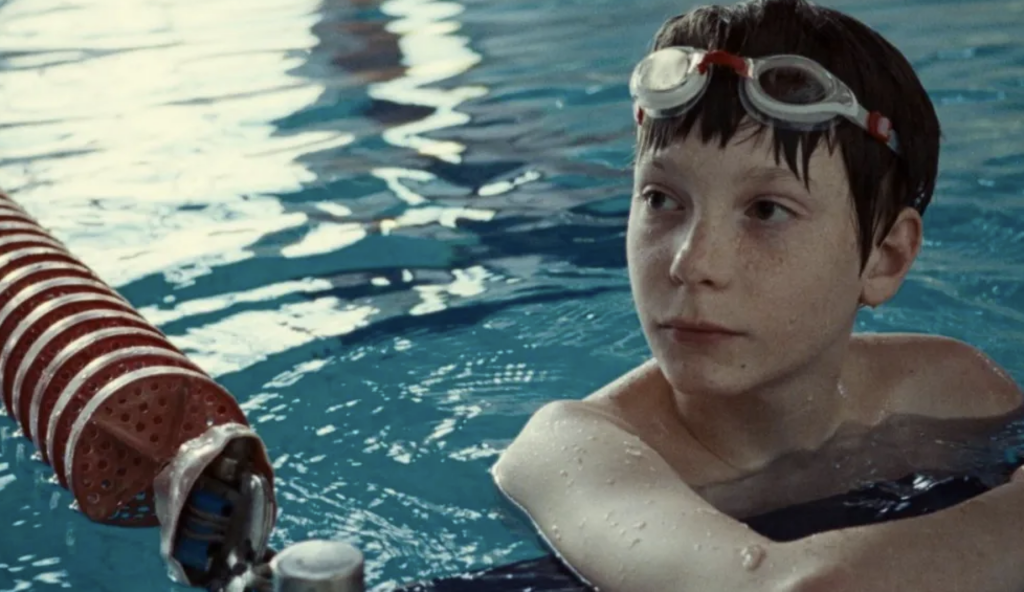Fantasia Fest: Shinji Araki’s twisted revenge tale Penalty Loop is worth watching again and again and again
"Don't go. Not today."
In recent years, the Fantasia International Film Festival has shown a knack for collecting films from the unlikeliest of sub-genres: time loop movies. Beyond the Infinite Two Minutes and River were both crowd-pleasers that took limited budgets and locations to turn out two unique takes on the trope.
This year, the loops are back, but the vibes are different. Writer-director Shinji Araki’s Penalty Loop is a smart, moving meditation on the nature of revenge and the ripple effects that violence has on people.
Jun (Wakaba Ryuya) is an aspiring artist whose days are dedicated to work and spending time with his girlfriend, Yui (Rio Yamashita). When Yui doesn’t come home late one night, Jun fears the worst. His anxieties are confirmed when the police take him to identify her body.
Consumed with rage and a thirst for vengeance, Jun meticulously stalks Yui’s killer, Mizoguchi (Yusuke Iseya), and quietly plots the perfect murder. Jun disguises himself as a worker at Mizoguchi’s job and kills him. Everything goes off without a hitch, save for one small wrinkle. When the clock on his car hits midnight, everything resets to 6 am, earlier that day.
Jun doesn’t realize this at first, only slowly noticing a creeping sense of deja vu. Instead of stopping to consider what’s happening, he’s consumed by his quest, focusing solely on enacting his revenge. Each time though, when midnight comes, all his actions are undone. As he repeats the process again and again, he notices slight deviations in the day. Ones that cause him to continually alter how he murders his target. Leading Jun to realize that he isn’t the only one reliving this day, but that Mizoguchi is too.
What makes Penalty Loop stand tall in a sea of similar offerings is how it expands past its basic premise. Many time-loop films stay focused on the repeated aspects of their setting, not the larger world around the characters. Araki almost seems to reject that approach by attempting numerous twists on the formula and having the characters’ central motivations become a bigger and bigger burden the longer things stretch out. It’s as far removed from Groundhog Day as you could hope for.
Trying to explain how Penalty Loop morphs from a dark revenge tale to an absurd comedy and then back in on itself is difficult without getting into spoiler territory. Suffice it to say the closest comparisons here are Black Mirror and Vincenzo Natali’s Nothing. Araki laces his bouts of violence with black humor but always comes back to examining the human condition. Even if it comes through an existential lens. At times the rest of the world seems to cease to exist, as this minor morality play unfolds in plain sight.
Jun and Mizoguchi make for strange bedfellows, with anger and confusion as their main character trairs. Yet as the day continually plays out, they find themselves changing. Jun questions how long he can keep up with the killing. Whereas Mizoguchi becomes more nihilistic and indifferent to his routine. Stuck together in this strange dance, a form of “friendship” develops between the pair.
While Ryuya and Iseya’s terrific performances elevate the material, there would be no film without Araki’s dedication. Wearing every hat, from writer to director to editor to musician, can often sink a production. Somehow, against all odds, Araki proves to master them all. Each choice made is a masterstroke, something that seems remarkable, given how early he is in his career.
Araki doesn’t just mess with the time loop formula but also the vibe. It lets the story slow down at times, becoming a more reflective experience in the process. That could be part of its indie nature, but it allows the ebb and flow to wash over the viewer.
In the tradition of great sci-fi films, Penalty Loop uses its genre trappings to explore more significant ideas. Araki mixes introspection on subjects like grief and guilt with a tinge of humor. His approach isn’t necessarily revolutionary but lends a sense of care to the storytelling and characters that many bigger films simply don’t care about. Penalty Loop surely won’t be the very last time loop film to be made, that much is a given. Yet it certainly stands as a sterling example of what you can do with those ideas.






